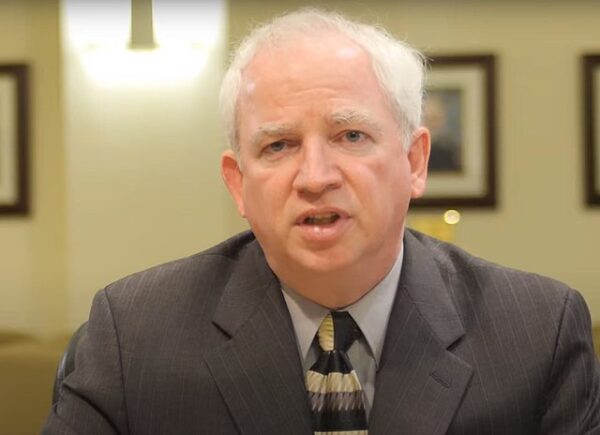On the eve of a televised hearing on the Jan. 6 riot at the Capitol, a federal judge in Santa Ana has ordered former Chapman University law professor John Eastman to continue producing about 150 documents to the congressional committee.
U.S. District Judge David O. Carter on Tuesday ordered Eastman to turn over 159 documents while finding that 440 in dispute were privileged and should be kept private.
Last month, Eastman filed a lengthy legal brief doubling down on his claims of widespread corruption in the 2020 presidential election, but Carter brushed aside those claims and even widened the time frame congressional investigators could have access to some emails.
The select committee investigating the Jan. 6 unrest will begin holding public hearings on their probe at 5 p.m. Thursday.
Carter had earlier ruled that former President Donald Trump and Eastman “likely committed obstruction of an official proceeding” from Jan. 4–7, 2021, but in Tuesday’s ruling he said there was evidence the plotting to derail the certification of President Joseph Biden’s election began “as early as Dec. 7, 2020.”
Citing a motion from the congressional committee, Carter wrote that, “On that day, Dr. Eastman forwarded a memo explaining why Jan. 6 was the ‘hard deadline’ that was ‘critical to the result of this election’ for the Trump Campaign. A week later, on Dec. 13, President Trump’s personal attorney received a more robust analysis of Jan. 6’s significance, which was potentially ‘the first time members of President Trump’s team transformed a legal interpretation of the Electoral Count Act into a day-by-day plan of action.'”
Carter said the documents in dispute “also confirm that the plan was established well before Jan. 6, 2021.”
The judge added, “In an email on Dec. 22, 2020, an attorney with the Trump legal team referred to the ‘the Jan. 6 strategy’ as a known plan to eight other people. Two days later, Dr. Eastman explained that the worst case for the plan was receiving a court decision that constrained Vice President (Mike) Pence’s authority to reject electors. Dr. Eastman and President Trump’s plan to stop the count was not only established by early December, it was the ultimate goal that the legal team was working to protect from that point forward.”
The alleged plan was to have an alternate set of electors established in various states where the election was close, creating a dispute that Pence could decide and swing the election to Trump.
Carter ordered some documents released under a legal theory that the normally privileged documents were possibly part of a criminal conspiracy, which overtakes the right to keep them private.
Carter said four of the five disputed documents consider how filing election-related lawsuits might hurt the plan.
“In the fifth email, dated Dec. 22, 2020, an attorney goes beyond strategizing litigation outcomes,” Carter wrote. “This email considers whether to bring a case that would decide the interpretation of the Electoral Count Act and potentially risk a court finding that the act binds Vice President Pence. Because the attorney concluded that a negative court ruling would ‘tank the Jan. 6 strategy,’ he encouraged the legal team to avoid the courts. This email cemented the direction of the Jan. 6 plan. The Trump legal team chose not to seek recourse in court — instead, they forged ahead with a political campaign to disrupt the electoral count. Lawyers are free not to bring cases; they are not free to evade judicial review to overturn a democratic election.”







